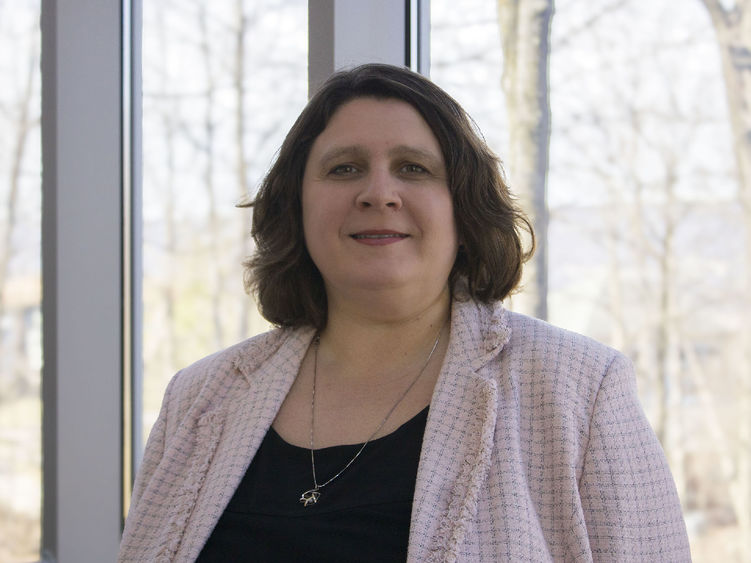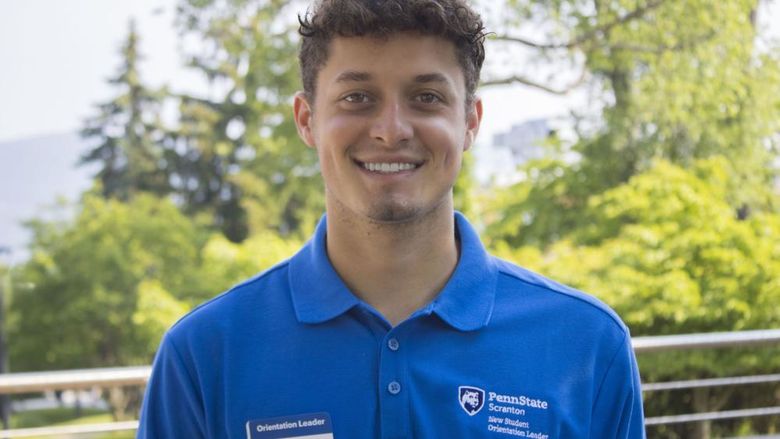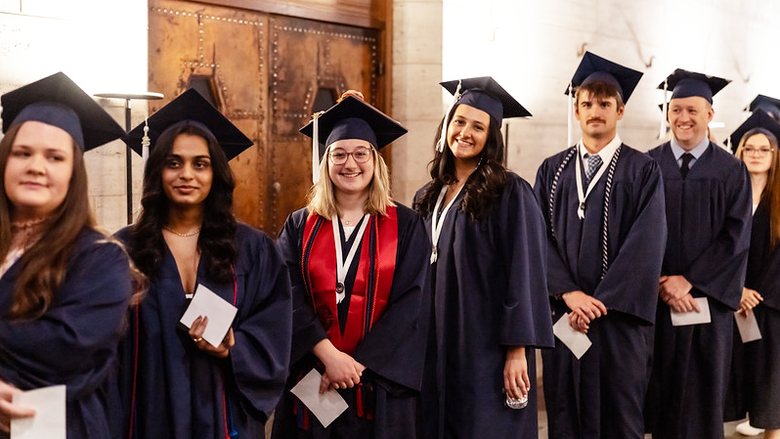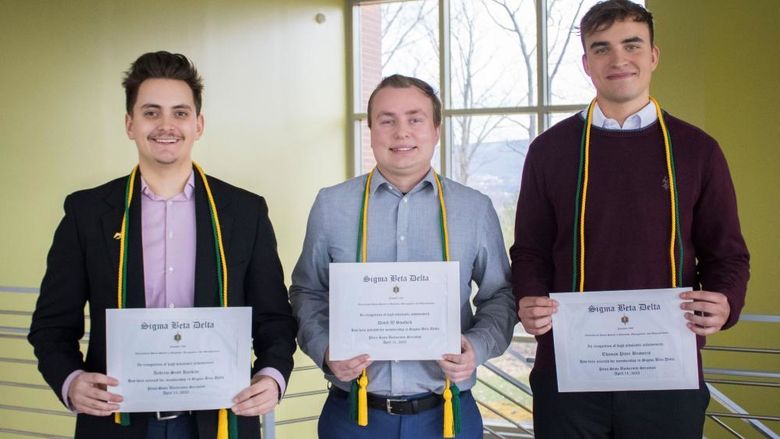
Penn State Scranton’s Assistant Professor of Business Nonna Sorokina recently presented her research, “Sustainable Energy Marketplace and Societal Readiness,” which examines how public opinion influences investments in sustainable energy projects, during the campus' Brown Bag Lunch and Learn Seminar Series.
DUNMORE, Pa. — Penn State Scranton’s Assistant Professor of Business Nonna Sorokina presented her research, “Sustainable Energy Marketplace and Societal Readiness,” which examines how public opinion influences investments in sustainable energy projects, during this semester’s Brown Bag Lunch and Learn Seminar Series on March 19.
The series, hosted by Penn State Scranton, showcases research projects made possible via cross-disciplinary collaboration. Sorokina’s talk focused on a study she led computationally investigating connections between community support and the business of energy firms, such as financial investments, profits and job creation. She and her team developed an approach to evaluate communications to various stakeholder groups and found that the motivation underpinning investment choices is often based on intangible values.
Inspired by the aftermath of the Fukushima disaster, a Level 7 nuclear accident on March 11, 2011, the study highlights that societal support for sustainable energy can make investments less risky, more profitable and create more jobs, according to Sorokina.
"I am a big proponent of reduction of dependency on fossil fuels from both environmental and social perspectives,” Sorokina said. “I was happy to develop research relevant to that purpose."
The research, conducted over the past year, involved collaboration with several colleagues, including Saya Lee, assistant professor in the Ken and Mary Alice Lindquist Department of Nuclear Engineering at Penn State, and Darshana Sunoj and Hyungjin Kim, graduates of the Department of Economics at Penn State.
“Our research helps navigate community readiness and find an economic basis for the development of sustainable energy,” Sorokina said. “It also promotes nuclear energy as a part of the ‘green’ energy sources suite.”
Sorokina expressed her enthusiasm for the project, praising her collaborators and the attention the research has received.
“I love everything about this research project! Great collaborators, interesting topic. The papers that we developed enjoy a lot of attention, with about 10 conference presentations and seminars and an invitation to submit to a journal. I hope we will be able to secure funding to continue this research agenda,” she said.
Sorokina highlighted the institutional strength of Penn State and the collaborative efforts across various departments and units. The project also involved support from Gretta Kellogg, assistant director of strategic initiatives for Institute for Computational and Data Sciences (ICDS) and for the Center for Applications of Artificial Intelligence and Machine Learning to Industry (AIMI), along with data analytics students and Assistant Professor of Engineering Dusan Ramljak at Penn State Great Valley.
“This project, aiming to bring the first university nuclear microreactor to University Park for groundbreaking research, manifests Penn State’s institutional strength with the following units involved: Office of the Senior Vice President for Research, ICDS, AIMI, Ken and Mary Alice Lindquist Department of Nuclear Engineering, Department of Economics, Commonwealth Campuses, Government and Community Relations, Environmental Health and Safety/Radiation Protection,” Sorokina said. “This research shows the power of ‘WE ARE’ and what we can do together.”
Sorokina also emphasized the importance of presenting research through seminars, noting the benefits of discussions and critical thinking from colleagues.
“The seminars are incredibly helpful in developing the research due to useful discussions and critical thinking of colleagues that helps improve and polish the study before it goes to the journal. It also helps us to know better each other’s research and to develop future collaborations,” she said.
The research was funded by the U.S. Department of Energy’s Nuclear Energy University Program, U.S. Department of Energy. The funding was made available via ICDS and AIMI.
Brown Bag Lunch and Learn Seminar Series
Loan “Emily” Pham, assistant professor of business at Penn State Scranton, is now overseeing the Brown Bag Lunch and Learn Seminar Series for the first time. Pham said she believes that a thriving academic community is built on the foundation of shared knowledge and meaningful dialogue.
“This conviction inspired me to organize the Brown Bag seminar series — a platform where faculty can engage in interdisciplinary discussions that enrich both teaching and research. By fostering an environment of intellectual exchange, the series encourages diverse perspectives that challenge assumptions, deepen understanding and spark innovation, reinforcing the value of collaboration in academia,” she said.
The series, initiated several years ago by Mike Evans, assistant dean for undergraduate nursing education at Penn State’s Commonwealth Campuses and former Penn State Scranton psychology faculty members Doug Sellers and Karin Machluf, provides a platform for faculty, students and alumni to share their research, quality improvement projects and creative works in a non-intimidating format before presenting at larger conferences.





